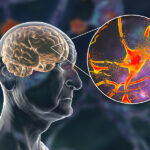By David Blyweiss, M.D., Advanced Natural Wellness
November 26, 2014
- Exploring the roadmap of your brain
- Engage your curiosity to beat Alzheimer’s
- A bigger brain is a better brain
When it comes to my baby-boomer patients, one of their biggest fears is that they’ll lose mental acuity as they age. Many of them have watched their parents’ memories fade away. They know there isn’t a cure for Alzheimer’s and dementia, and this makes these conditions especially frightening.
Well, it won’t do you any good to sit around worrying about it. The best thing you can do is take what we do know, and put it into action.
One of the most important aspects of your brain is that it’s constantly changing. New connections are made, while others may disappear. Brain volume might shrink in some areas and expand in others. Brain cells are constantly regenerating. It’s like a roadmap that changes every day.
The brain’s ability to adapt and change over time is called plasticity. And today we’re learning that keeping your brain active and healthy can prevent the loss of plasticity. This, in turn, can defend against memory-robbing conditions that strike in old age.
Here’s a perfect example. In recent years we’ve learned that people with higher intellectual stimulation throughout their lives can delay mental decline by almost nine years. This is true even if they’ve inherited the APOE-e4 gene, the one that increases the risk of Alzheimer’s disease.
If you have a college degree, chances are good you’re included in this group. Your odds are probably even better if you’ve spent most of your career in a mentally challenging job.
MD Exposes the Hidden Danger to Your Eyes

When your eyesight starts to fail, it's a real problem. Suddenly you can't go to the grocery store... you can't get to the doctor if you have an emergency... you can't meet your friends for dinner…
Your "regular" doctor doesn't have time to keep up with the latest research. And the same goes for eye doctors. They go to school to learn how to fit you for glasses and contacts, but have no way of preventing the damage and loss of eyesight that threatens your freedom and independence.
Let me show you something that explains a LOT about how your eyes work.
In my FREE Special Report, I'll show you a HUGE, untapped resource for your eyes that safely and naturally restores clear, effortless eyesight.
Click here to get started...
But what happens if neither of these applies to you?
It turns out it’s never too late to start challenging your brain. Even if you’ve never stepped foot in a college, you can ward off mental decline by learning new things and engaging your natural curiosity.
In fact, it might surprise you to learn people who are less challenged early in life are the ones who get the biggest boost when they stretch their brainpower in mid- to late life. So, if you fall into this category, you still have time to get those brain cells firing in just the right way.
Here’s what it takes to kick your mental capacities into high gear for life-long mental prowess…
Embrace a lifetime of learning. We humans have a huge capacity to learn new things. But once you stop putting those skills to use, the roadmap in your brain stops creating new pathways. It becomes less plastic.
This makes it especially important to engage your natural curiosity to learn. It doesn’t matter what you’re curious about. It could be as simple as wanting to find the answer to a riddle – or as complex as learning a new computer program. Both of them will increase activity in your hippocampus and help form new memories.
Some learning activities, like studying a new language, can even make your hippocampus grow larger. Since shrinkage of the hippocampus is associated with dementia and Alzheimer’s, this could be a great way to stave off these mind-altering ailments.
If learning a language doesn’t appeal to you, there are many other things you might want to know more about. Maybe you’ve always wanted to play a musical instrument, learn how to grow organic herbs or even take up writing. The key is to actually take the time to do it.
Become socially active. Meeting and talking with new people offers the exchange of new ideas that challenge your brain. It also encourages you to participate in events and activities you might not think of on your own.
The World's Quickest Solution for Ending Prostate and Urinary Misery
This has recently been revealed to be one of the only real breakthroughs in prostate health.
The seeds of a strange fruit (sometimes called "Chinese Apples") hold powerful phytonutrients that are a revolution in prostate health.
In fact, UCLA and Veterans Administration research have now proved this to be true.
Not only that, but it may be the worlds quickest solution for ending prostate misery.
Simply stated, these phytonutrients represent a huge step beyond beta sitosterol, saw palmetto, and other phytosterols alone.
Simply click HERE if you want to have fast prostate relief...restful, uninterrupted sleep...no more constant "urges to go"...enhanced virility...and optimal prostate support for life.
When you embrace new concepts and take part in new experiences, you’ll not only learn more. Your brain will also build new connections and memories that encourage brain plasticity.
So, talk to everyone you meet. Head out to the community college and sign up for a class or two. Join a social club or become a volunteer for something you believe in. Take your new friends to the museum, planetarium or local art fair. All of these activities will expand your knowledge and ramp up your brainpower.
I also suggest working puzzles, playing strategy games and enjoying brain-teasers in your downtime. The great thing about these activities is that none of them are the same, so there’s always a new challenge.
Even if you’ve never picked up a crossword puzzle before, you can get started on the easy ones. Then, work your way up to the harder puzzles. They’re fun, entertaining… and you might even learn something new.
Here are a few more things that can play a role in your brain’s plasticity…
When you treat your body right, you also treat your brain right. And this is where adopting a few very important habits can do you a world of good.
Choose to eat a Mediterranean-style diet. This type of diet – high in fresh fruits, vegetables and fish – can increase brain volume. And eating omega-3 rich fish just once a week can cut your chances of Alzheimer’s by more than half.
On the other hand, eating foods loaded with sugars, trans-fats and other processed ingredients actually increases your risk of Alzheimer’s. This is one more great reason to load up on organic fruits, vegetables and wild-caught fish.
Add a few supplemental nutrients that can provide even extra protection and nourishment to your brain. For example…
- CDP-choline (also known as citicoline) helps improve energy metabolism in the brain and boosts short-term memory. I recommend 100 mg. daily.
- Phosphatidylcholine, especially used in combination with CDP-choline, significantly improves both short- and long-term memory. All it takes is 50 mg. each day.
- Vinpocetine is a powerful cerebral vasodilator that helps improve blood flow to the brain and reduce the loss of neurons. Try taking 10 mg. each day for best results.
- Bacopa, or “Brahmi,” as it’s often called, might just turn out to be the most potent memory-boosting, mind-enhancing herb ever discovered. Bacopa’s secret is something known as saponins. Saponins work by enhancing nerve impulse transmission and repairing damaged neurons. I suggest 20 mg. daily for best results.
Get plenty of physical activity. Older people who are more physically active have less brain shrinkage than those who are more sedentary. In fact, people who get moderate exercise in midlife have almost a 40 percent reduced likelihood of developing cognitive impairment. Even if you start exercising later in life, it can reduce the odds of mental decline by about a third.
So, start moving your body more frequently to improve your long-term mental health. I recommend walking for 30 minutes, twice a day. Toss in a couple bursts of intensity for good measure, and your brain will be all the happier for it.
Resources:
Vemuri P, et al. “Association of lifetime intellectual enrichment with cognitive decline in the older population.” JAMA Neurol. 2014 Aug;71(8):1017-24.
Lachman ME, et al. “Frequent cognitive activity compensates for education differences in episodic memory.” Am J Geriatr Psychiatry. 2010 Jan;18(1):4-10.
Lund University. “Language learning makes the brain grow, Swedish study suggests.” ScienceDaily. Oct 2012.
National Research Council (US) Committee on Aging Frontiers in Social Psychology, Personality, and Adult Developmental Psychology; Carstensen LL, Hartel CR, editors. When I’m 64. Washington (DC): National Academies Press (US); 2006. 4, “Socioemotional Influences on Decision Making: The Challenge of Choice.”
Scarmeas N, et al. “Mediterranean diet and mild cognitive impairment.” Arch Neurol. 2009 Feb;66(2):216-25.
Morris MC, et al. “Consumption of fish and n-3 fatty acids and risk of incident Alzheimer disease.” Arch Neurol. 2003 Jul;60(7):940-6.
Geda YE, et al. “Physical exercise, aging, and mild cognitive impairment: a population-based study.” Arch Neurol. 2010 Jan;67(1):80-6.






